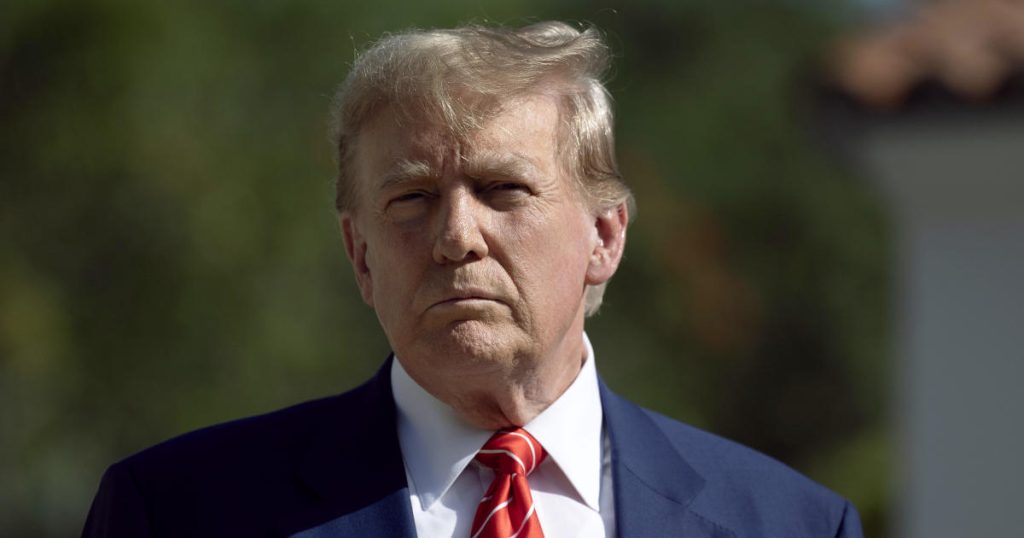A federal judge in Florida denied former President Trump’s motion to dismiss the classified documents indictment against him, ruling that the Presidential Records Act does not shield Trump from charges of unlawfully retaining national defense information. The charges against Trump include 32 alleged violations of the Espionage Act, which makes it illegal to mishandle national defense information. The FBI recovered over 300 sensitive government records from Trump’s Mar-a-Lago residence, which prosecutors accused him of illegally keeping. Trump has pleaded not guilty and denied any wrongdoing, but his attorneys argued that the PRA granted him “unreviewable discretion” over classified records. However, the judge noted that the charges against Trump do not reference the PRA, and the statute does not provide a basis for dismissal.
Former President Trump has been charged with illegally retaining 32 of the records, and his attorneys argued that the PRA precludes judicial review over a president’s record keeping. However, the indictment against Trump does not rely on the PRA for any of the offenses with which he is charged. The judge’s order emphasized that the accusations against Trump were detailed in a lengthy indictment that included evidence like investigative interviews and photographs. Based on the allegations in the indictment, the judge concluded that the PRA does not provide a pre-trial basis to dismiss the charges. Trump continues to maintain his innocence and is set to face trial on the indictment.
The case against Trump marks a significant development in ongoing investigations and legal proceedings involving the former president. The charges against Trump highlight the gravity of mishandling national defense information, which is prohibited by the Espionage Act. The recovery of over 300 sensitive government records from Trump’s residence further underscores the seriousness of the allegations against him. Despite Trump’s plea of not guilty and denial of wrongdoing, the legal proceedings are set to continue, shedding light on the complexities of holding a former president accountable for alleged unlawful actions.
As the legal battle continues, Trump’s defense team will likely explore all avenues to defend against the charges. The denial of his motion to dismiss the case indicates that the court is proceeding with the indictment and will allow the trial to move forward. The judge’s ruling on the applicability of the Presidential Records Act in this case sets a precedent for how similar cases involving former presidents and classified information may be handled in the future. The outcome of Trump’s trial will have broader implications for issues related to national security, recordkeeping, and presidential accountability.
The denial of Trump’s motion to dismiss the classified documents case underscores the impartiality and thoroughness of the legal proceedings in this high-profile case. The judge’s decision to reject Trump’s argument based on the Presidential Records Act demonstrates a commitment to upholding the rule of law and ensuring that justice is served. As the case against Trump progresses, the public will continue to closely follow the developments and outcomes of the trial. The significance of the charges and the implications for national security and presidential accountability make this a case of great interest and importance in the legal and political spheres. The trial is set to shed light on the legal complexities surrounding former presidents’ actions and obligations related to classified information.















